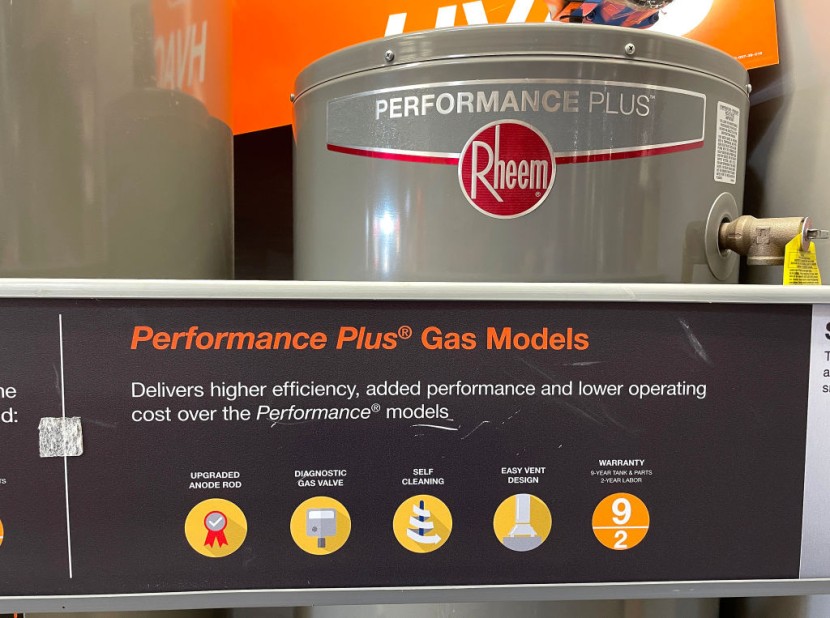If its regulatory plan is adopted, the Biden administration's most recent attack on residential appliances, notably water heaters, will go into force in 2029 as it continues to carry out its aggressive energy efficiency drive.
Karine Jean-Pierre, the communications secretary for the White House, acknowledged the president's targeting of home appliances on Monday, as reported by Fox News.
New Rules for Water Heaters

Water heaters are the most recent target. In a proposal late Friday, the Department of Energy (DOE) claimed that new rules would ultimately "accelerate deployment" of electric heat pump water heaters, claiming that this would result in billions of dollars in cost savings and a reduction in carbon emissions for Americans.
The proposed criteria would remove less cost-effective but more energy-efficient water heaters from the market if they were to become law. The federal government would mandate higher efficiency for heaters that use heat pump technology or, in the case of gas-fired water heaters, require efficiency improvements through condensing technology.
However, non-condensing gas-fired water heaters are far less expensive and smaller, so they require less installation and are more affordable for Americans of all income levels. The DOE has recently proposed new criteria for several home appliances, including gas stoves, laundry washers, refrigerators, air conditioners, and water heaters.
The Biden administration is advancing regulations that may affect more equipment, including home furnaces, pool pumps, battery chargers, ceiling fans, and dehumidifiers. As part of its climate plan, the Biden administration bragged in December that it had implemented 110 energy efficiency regulations in 2022 alone.
US Regulations on Appliances
The United States has several regulations that govern the energy efficiency and safety of appliances. These regulations protect consumers and the environment by ensuring that appliances are as energy-efficient as possible and do not pose a safety hazard.
In addition to the DOE, other federal agencies also have a role in regulating appliances. For example, the Consumer Product Safety Commission (CPSC) ensures that appliances are safe for consumers.
State and local governments may also have their appliance regulations. For example, some states have enacted laws that require appliances to be more energy-efficient than the federal standards.
The new rules have been met with mixed reactions from the industry. Some manufacturers have welcomed the rules, saying they will help accelerate the adoption of more efficient water heaters. Others have criticized the rules, saying they will be too costly for consumers and manufacturers.
The new rules are part of the Biden administration's effort to reduce energy consumption and greenhouse gas emissions. The administration has also proposed new rules for other appliances, such as refrigerators, washing machines, and dishwashers.
The regulations on appliances in the United States are constantly updated as new technologies become available. This helps ensure that consumers access the most energy-efficient and safe appliances possible.
© 2026 HNGN, All rights reserved. Do not reproduce without permission.








